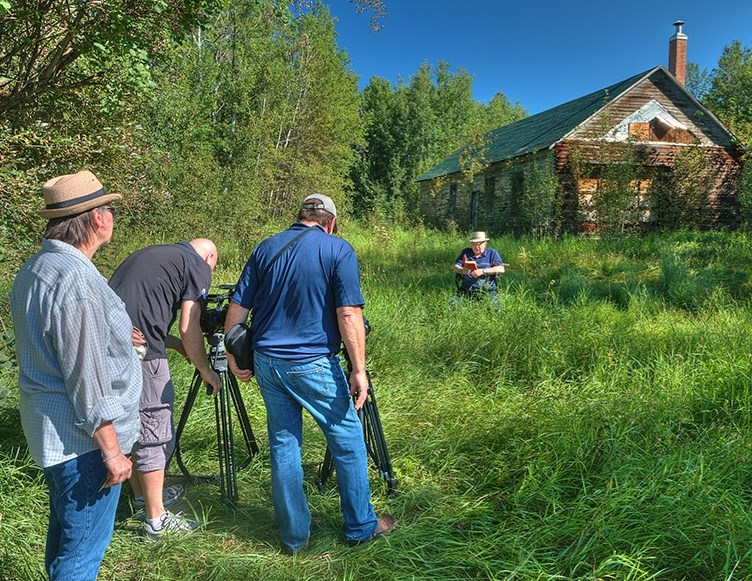One of Athabasca’s most well-known sons will be featured in a locally-produced documentary, set to be complete by Christmas.
“George (Ryga) is very much intellectual property of the world, if you will, and he’s from Richmond Park,” said Gina Payzant, the documentary’s writer, producer and co-director.
Ryga was born and raised in Richmond Park and died in 1987 in Summerland, B.C., an accomplished and provocative writer.
He was the son of Ukrainian farmers who settled in the Athabasca area in the late 1920s. Ryga grew up working on the farm, alongside Indigenous men from Wabasca and Calling Lake.
Payzant said Ryga was a pioneer in writing about Indigenous issues, and became famous for his 1967 play, The Ecstasy of Rita Joe, which tells the story of a young Indigenous woman who leaves the reserve for big city life and ends up getting raped and murdered.
It was his experience growing up in Richmond Park, working alongside Indigenous people that inspired Ryga’s later works, Payzant said.
“He saw they had so much taken away from them. First, their land was taken away, their faith system was taken away, their cultural identity taken away, even their language,” Payzant said. “He was concerned about the plight of these people who he saw as being voiceless, and he wanted to give them a voice.”
The idea of creating a documentary about Ryga sprung from Payzant’s work as archivist at the Athabasca Archives. She said the archives had very little about Ryga, and she took it upon herself to fill that hole in Athabasca’s history by first interviewing Alex Krawec, who grew up with Ryga.
Only two to three minutes into the interview, Payzant said she knew an interview was not good enough, and it needed to be a film.
“I realized we had some new stories to offer Canada, because of course George Ryga’s impact is global. It’s international,” she said.
The title of Payzant’s documentary, Just a Ploughboy, originates from a quote in a 1990 Athabasca Advocate article. Ryga was a controversial figure in the community at the time for his politics, and community members were opposed to what is now known as Whispering Hills Primary School being named after the writer. Ryga and his family are accused of being communists in the article.
Bill Chrusch is quoted as saying “Why should we listen to him? He is just a plow-boy like the rest of us.”
Payzant took that quote and ran with it – “He was just a ploughboy.”
The article concludes in a way Payzant describes as “gracious,” with Chrusch quoting scripture from Luke, that “no prophet is accepted in his own country.”
Krawec, who Payzant interviews for the documentary, said although he did not agree with Ryga’s politics, it is important to tell Ryga’s story to the public.
“He was a very talented boy … I think that’s probably the very first important thing. He was a local boy, and nobody knew much about it,” he said. “Personally, I think George should get the credit he has coming to him.”
Payzant said an essential theme of the documentary is the idea of the land and the people on it, how it affects the writer who in turn shapes us.
“That is still thematically tying everything together, and I think the result of that through our filming has been the beauty of the land has just shone through,” she said. “It’s been a highlight of the film, to highlight Richmond Park.”
The fulcrum of the documentary was filmed in Summerland, B.C. at the Ryga Festival Aug. 30 to Sept. 3, during a workshop titled “Rita Joe 50: A Rethink,” and shows people speaking of Ryga’s impact.
The film is being designed for high school or university use and will be a 22-minute short documentary.
Payzant said she is looking to premiere the documentary in January or February, and would love to do it at the Nancy Appleby Theatre.
“To me, he represents what art does – it holds up a mirror. And that mirror tells the truth.”



